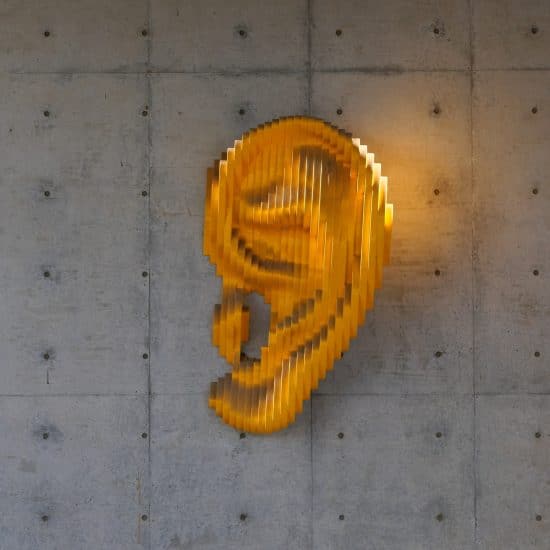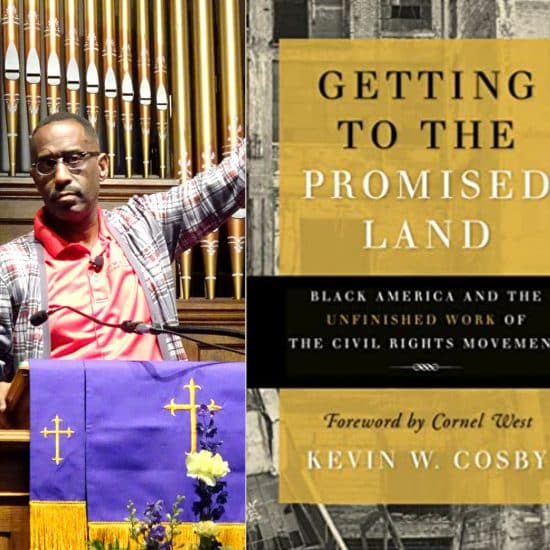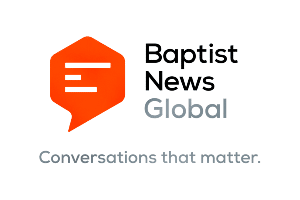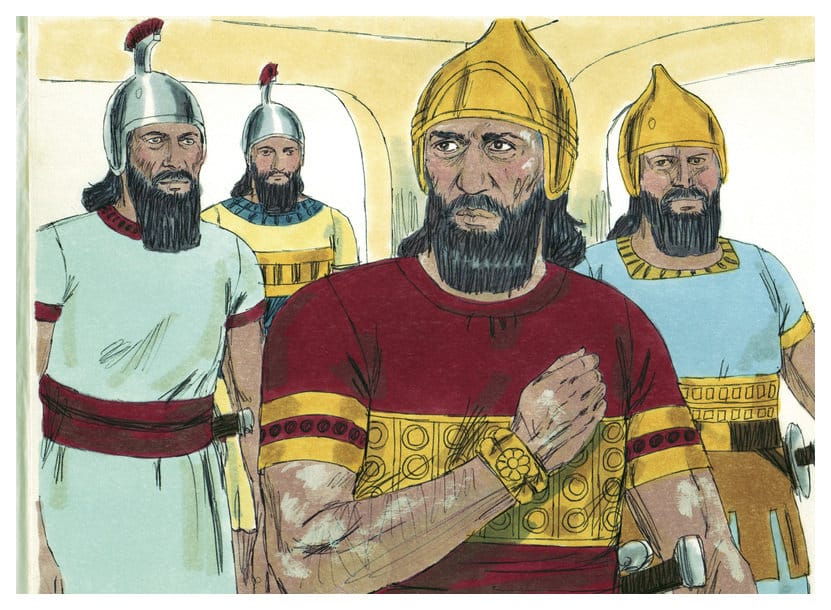
Naaman was a military commander who found healing when he listened humbly in the 2 Kings 5 account. (Wikimedia Commons)
In 2 Kings 5, a self-righteous, important man had to humble himself and listen to others in a quest to find healing from leprosy. Naaman, the commander of the military of Aram (in modern-day Syria), was told by a Hebrew slave that he could find healing from a prophet. Desperate for healing, Naaman went to Israel, a nation he previously battled.

Brian Kaylor
But when a servant — instead of the prophet Elisha — greeted the important man, he was cross. He was even more insulted when told to go over to an unimportant, dirty river and hop in to get healed. So, Naaman stormed off. After some servants of his — perhaps more slaves — talked sense into him, Naaman returned, dipped himself in the river seven times as told, and was healed. By humbly listening to others — including slaves and enemies —he found healing.
That might be the recipe we need today. By humbly listening to those we normally wouldn’t listen to, perhaps we can find healing. But such listening, it turns out, is difficult.
When leaders of the Southern Baptist Theological Seminary in Louisville, Ky., recently dismissed calls that the institution pay reparations as part of the repentance process for supporting and profiting from slavery, they did so with condescension that sounded like Naaman storming away from a chance for healing.
In a May 31 letter by SBTS President Al Mohler and Board Chairman Matthew Schmucker, SBTS rejected the call to give funds to a historically black Baptist college also in Louisville. But more than the “no,” it was the tone that sounded a problematic tune. They wrote that they are “open to partnerships that honor the gospel of Jesus Christ and the word of God,” thus implying that supporting Simmons College of Kentucky would not meet that purpose. Then they went even further.
“Such a partnership can come only with institutions that share our theological commitments as made clear in the Baptist Faith & Message 2000 and our other confessional statements,” they wrote. “We would not partner with an institution that denies or repudiates doctrines essential to biblical Christianity.”
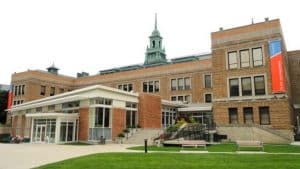
Simmons College of Kentucky is also headquarters to the National Baptist Convention of America. (Louisville Scoop)
With that, Mohler and Schmucker proved they haven’t moved much theologically from the heresies of the four slave-owning founders of SBTS. To suggest that a black Baptist school founded by ministers born into slavery denies biblical Christianity simply because it hasn’t signed a creedal document written by the mostly white Southern Baptist Convention is a level of racial arrogance not far from past claims that blacks were too dumb to be educated or that blacks were inferior and thus God sanctioned their enslavement. The slaveholder religion passed down through SBTS seems strong still today.
Simmons is supported by the National Baptist Convention of America, which also has its headquarters on campus. I’ve come to count NBCA President Samuel Tolbert as a friend. I’ve known him for years through meetings of the Baptist World Alliance and the North American Baptist Fellowship. Mohler and other SBC leaders haven’t been there since they stormed off in 2004 and left the BWA and NABF, thus missing many opportunities to listen and learn from Baptists from around the world. (You can hear from Sam and his heart for ministry in my “Baptist Without An Adjective” podcast interview with him.)
Sam’s NBCA has partnered for the last three years with the Progressive National Baptist Convention (another predominately black denomination) and the Cooperative Baptist Fellowship (a predominately white Christian network) for the “Angela Project.” The Angela Project is an effort to remember and reflect on the 400th anniversary this year of the first enslaved Africans being brought to what is now the United States.
The third of the three meetings will be today, June 19, on the date known as “Juneteenth” that marks the abolition of slavery in 1865. Today’s gathering will be at 16th Street Baptist Church in Birmingham, Ala., the site of a deadly Sunday-morning blast in 1963 by white supremacists that killed four young black girls in their Sunday School classroom. I’ll be there, listening and trying to humbly learn from my Baptist brothers and sisters from different denominational, ethnic, and ideological backgrounds.
That’s the first step on the journey for racial healing, especially for those of us who are white. We need to humbly listen. We need to read books by people of different races and sexes. We need to read columns and listen to interviews by people who think and look differently than us. At Word&Way, we try to do that as we cover all types of Baptists in our monthly magazine and on “Baptist Without An Adjective.” I’ve learned much by listening to my fellow Baptists. Like Naaman, let’s listen, learn, and seek healing.
Brian Kaylor is editor and president of Word&Way.

